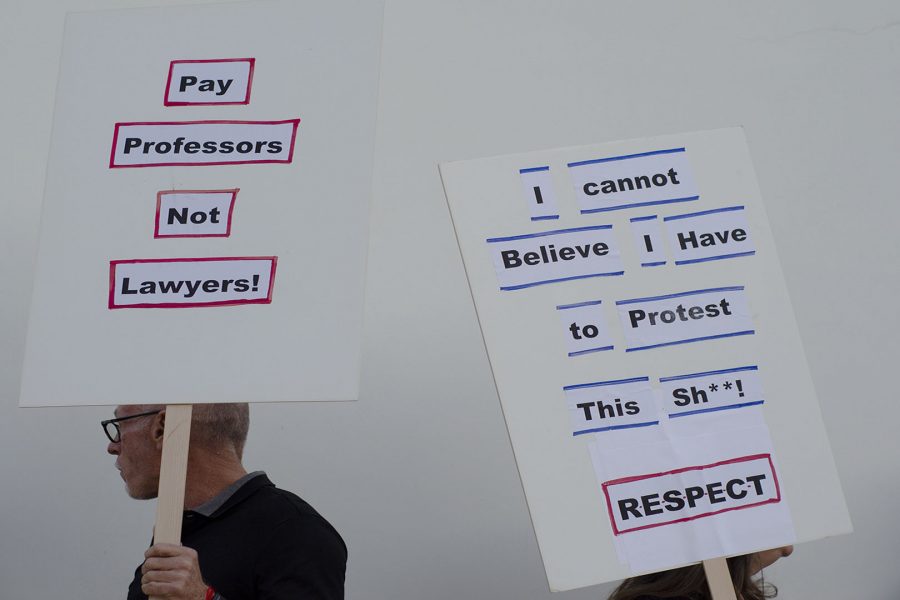Faculty are not pleased with their contract.
After a lengthy introduction of new employees at the Oct. 10 Board of Trustees meeting, faculty members spoke out against their new contract.
They advocated for a raise, and the 2.71 percent Cost of Living Adjustment that was offered did not cut it.
This contract also involved the recent initiative to transfer from health plans from PERS to SISC.
This push is already a recurring issue, as several faculty members prefer their PERS plans. In the transfer to SISC, retirement health benefits that were required under PERS can be eliminated in the future under SISC.
Edwin Estes, who works in real estate in the business administration department, said the 2.71 percent raise was below the 3.9 percent increase to COLA.
Estes also said that they are spending their money on litigation instead of faculty, and that the college’s reputation has been tarnished.
Catherine McKee is in the same department, and focuses on law and paralegal work.
McKee said the 2.71 percent COLA is not enough to cover the rising costs of health insurance. She further listed percentages of other expenses that have raised since last year with the lowest at 5 percent and highest at 25 percent.
Deborah Rivers, a mathematics professor, spoke on how dedicated the faculty was, and said they are being devalued.
She called the COLA inadequate, said they are understaffed, and provided statistics from the consumer price index.
Rivers further said that the college was considered a premiere college, but added that faculty are not being treated in the same manner. She also added that the COLA increase at Citrus College was over 10 percent, and said that Mt. SAC’s should be better than Citrus.
Maya Alvarez-Galvan, a member of the English department, said she had been at Mt. SAC for 19 years and used to feel proud to tell people she is from Mt. SAC.
She further brought up that teachers have to get through extended curriculum and provide support for students.
Alvarez-Galvan added that professors gladly helped with the implementation of AB705, because they love the school’s students, but said the school does not appear to care or value its teachers.
She voted no on the contract and said management was against giving faculty a raise because they would have to give a raise to other groups, like classified employees through a “me too” clause.
She questioned how it was equitable when the president gets a two percent raise, and called the situation “painful.”
Following the end of public communication, a large group of faculty left the board room, and were advised to move into a different room if they wished to talk outside.
Originally, faculty members were going to storm back when Eric Kaljumagi, president of the Faculty Association gave his report.
When faculty members in attendance began to leave, the decision was made to not storm back with a smaller group.
That decision allowed for Kaljumagi’s report to go without protesting fanfare, but it made his report all the more interesting.
“Never a dull moment,” he said after calling the last couple of weeks notable.
Kaljumagi added that the faculty who showed up were not him, and referred to them as an “undercurrent.” He said he underestimated the number of unhappy faculty and will find out more information.
He concluded his report by asking the board to attend a celebration of 28 adjunct faculty members.
If the contract is not passed, both parties must return and negotiate, and send a state fact-finding mediator if it is still deadlocked.
The Faculty Association would survey faculty for re-strike authorization on a January timeline.
The strike’s actions would likely be timed for the first week of the spring semester.
Until then, board meetings will continue to have upset faculty in attendance.



